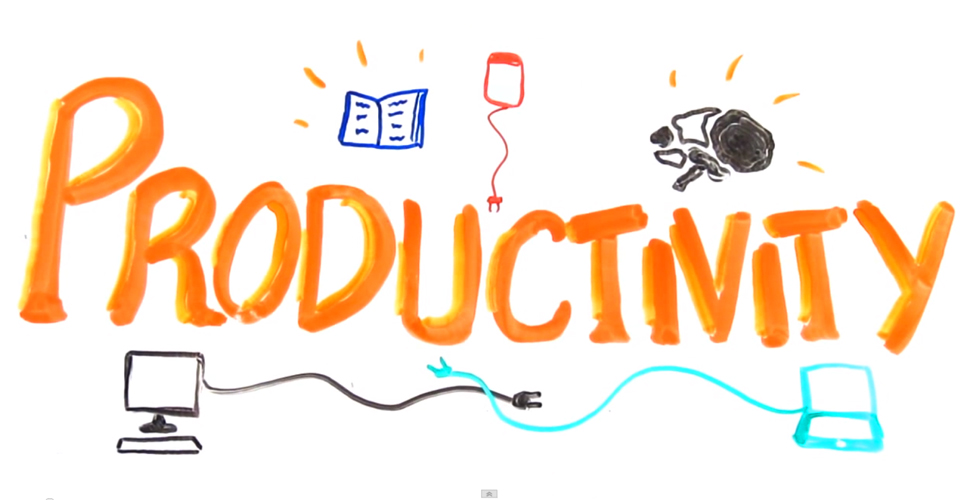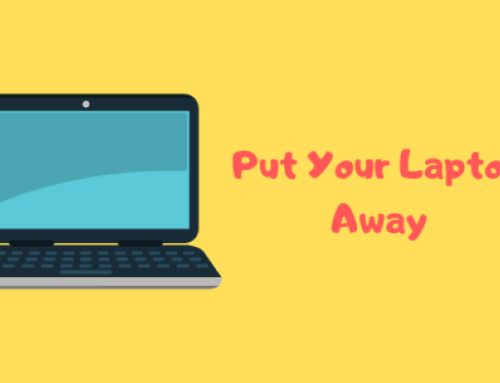7 Key Principles for Productivity and Effectiveness
May 8, 2019
Categories: Productivity
Lots of people struggle to stay organized, disciplined, and make progress on their long-term tasks. Maybe you are struggling with productivity and effectiveness. You know you have work to do, but you find yourself getting distracted with email, social media, or watching television. How do can some people hammer out astounding amounts of work, bringing their best effort every single time? We each only have 24 hours per day. How do some people always get their stuff done?
There are some tried and true methods for making extraordinary progress on your work tasks. No matter what your field is, if you follow these principles and implement them into your daily life, you will be more productive, effective, and efficient. If you incorporate just one of these principles, you will notice a difference. If you implement all of them, you will take your productivity to another level.
Principle #1: Motivation
Why are you doing what you are doing? Some people struggle to make progress on their daily tasks because they don’t see a purpose in what they are doing. We get our energy from our motivation, and it’s hard to maintain discipline if you are low on energy. If you hate your job and don’t see a purpose in it, it might be worth thinking about making a change. The other option is to connect your daily tasks to one of your key values. For example, there was a woman who worked as a janitor in a hospital. She didn’t necessarily love cleaning floors, but she connected her work to the overall mission of caring for the sick. This connection to the overall mission of the hospital renewed her motivation and reignited her energy.
Principle #2: Own Your Schedule
It’s impossible to get things done if your schedule isn’t organized. Find a system to write down all your appointments and assignments quickly and easily. I still use a large notebook planner that has every day organized into 15-minute increments. Lots of people keep their schedule in their phone. Find something that works for you and stick to it. Write everything down.
Also, it’s important to be in charge of your schedule. Don’t let other people run your life. In the evening, plan out your next day in advance. Write down everything, even things like exercising or playing with your kids. If you have empty space in your schedule, it is likely to get filled up by someone else’s priorities. Decide your priorities in advance, write them down, and stick to them.
Principle #3: Do Your Most Important Tasks (MITs) First
One of the best disciplines I have created for myself is to write down 3 most important tasks (MITs) every morning. I complete my MITs first, before doing anything else, such as checking email or social media. I try to complete each MIT in about an hour. That way, around lunch time I have completed my MITs and can shift to other tasks for the rest of the day.
Principle #4: One Thing at a Time
Task switching is a productivity killer. Instead, focus on one thing at a time and pour all your energy into that one task. When you are finished, take a short break, walk around, and then get ready to focus all your energy on the next task. In order to focus on one thing at a time, you need to limit distractions, which leads us to the next principle…
Principle #5: No Distractions
Lots of people are distracted multiple times per day by email, phone calls, tweets, etc. This way of doing life destroys productivity. Instead, when you are working, make it impossible to get distracted. Shut your office door. Shut down your email. Turn off notifications on your phone. Shut down your phone or turn it on silent. Be ruthless about eliminating distractions in your life.
Principle #6: Clean Up Your Email Habits
Lots of people struggle with email, but there’s a way to gain control of your inbox. Instead of getting distracted by email throughout the day, schedule in your email like you would a meeting (1-2 times per day should suffice for most folks). For that hour, focus completely on working through your inbox and responding to people. At other times of the day, no email. Focus on your work tasks instead.
Principle #7: Schedule in Timewasters
I use the term timewaster for anything you do that doesn’t contribute to your most important goals. For many people, timewasters include things like social media, television, reading articles or blogs online, etc. These activities aren’t bad. We all need some time to relax and veg out during our day. The problem is when timewasters creep up multiple times throughout the day, cutting into our productivity and effectiveness. The key is to schedule in timewasters. How much time do you want to watch TV each day? 1 hour? Great, put it into your schedule and enjoy your show. But at all other times of the day, no TV. How much time do you want to check social media each day? 30 minutes? Great, put it in your schedule and tweet away. But at all other times of the day, no social media.
Discussion
What do you think of the 7 principles for getting things done? Which principle do you struggle with the most? Which principle do you think would make the biggest difference in your effectiveness and productivity? Try it out and see what happens!

Related Thoughts

Subscribe To My Newsletter
Join my mailing list to receive the latest blog posts.
Receive my e-book “The Mental Health Toolkit” for free when you subscribe.





